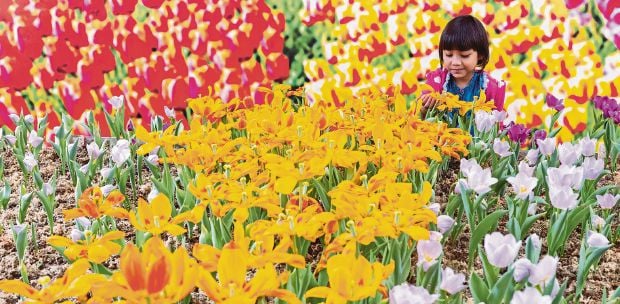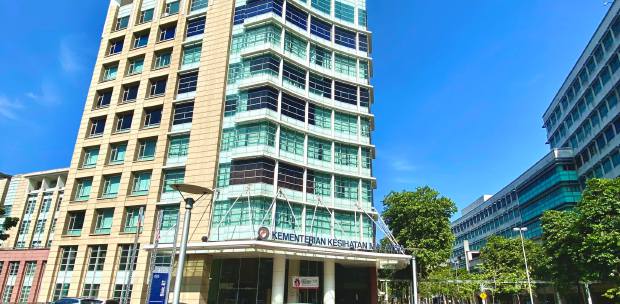It's a beautiful scenery at Labis Sunrise Farm, the fruits are delicious and the tourist experience is memorable, writes Alan Teh Leam Seng
DAWN has just broken over the slowly brightening sky as I signal right before turning off the almost deserted federal road linking Labis and Segamat, two major Johor towns.
Driving up the inclining laterite road proves a tad more challenging compared with the smooth tarmac just minutes earlier. Despite the uneven terrain, my trusty two-decade-old Proton Saga takes things in its stride.
A few minutes later, the Labis Sunrise Farm main entrance comes into view. Welcoming my arrival is Tang Qian Wei, second-generation owner, who manages the surrounding orchards with her four siblings.
After going through the Covid-19 standard operating procedures (SOP), including a temperature check and MySejahtera QR code scan, we head off to the Look-Out Point that offers a commanding view of the lush surroundings below.
Perched on the highest elevated point in the area, this place resembles a traditional Malay house complete with intricate local hardwood carvings and traditional embellishments that are unique to Johor.
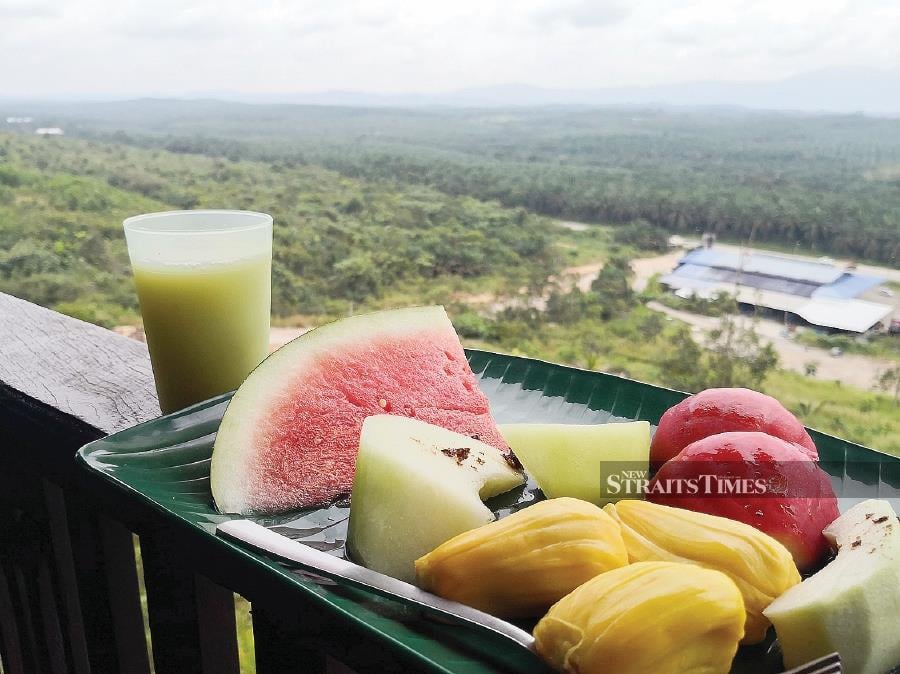
THE RISING SUN
In the distance, the early morning mist slowly fades to reveal a most stunning sunrise. Gesturing towards the mesmerising multicoloured sky, Qian Wei reveals that a sight very similar to this, more than a decade ago, had welcomed her father, Tang Chong Chon, when he was looking for a place to start a fruit orchard.
The perfect undulating hills, coupled with the abundant scenic beauty and tranquil surroundings, convinced Chong Chon that this was a place that would herald success and prosperity.
The family uprooted from their hometown in Ledang in 2009, which is some 70km away, and gave this chosen spot in Labis their all.
While seeking financial returns remained paramount, the Tangs never lost sight of their belief in the harmonious coexistence with nature. As a result, their business grew from strength to strength over the years and the rest, as they say, is history.
We spend the next hour at the Look-Out Point enjoying platters of freshly harvested fruits and gulping down icy cold kedondong (amra) drinks, while soaking in the sights that keep on changing hue as the sun slowly rises from the horizon.
The juicy jambu air (roseapples), together with guava, markisa (passion fruit), nangka (jackfruit), durian belanda (soursop) as well as the prized MB2 Johor pineapple variety breakfast offer a good idea of what Labis Sunrise Farm can produce.
The fruits are exceptionally tasty thanks to the many sustainable farming practices observed. Here, practically nothing goes to waste as leaf litter and tree trimmings are placed in designated heaps to produce organic compost through the natural bacterial and fungal decomposition processes.
The nutrient-rich compost is then used as environmentally friendly fertiliser to help the trees mature quickly and yield superior fruits, exactly like the ones on our table.
Best of all, the adoption of biological control techniques throughout the farm ensures that all plants are pest-free without the need for toxic chemical additives that have detrimental health effects.
THE DAILY DRIVE
After breakfast, Qian Wei embarks on her daily drive through the orchard, and I am on seventh heaven when she extends the invite to tag along.
With nothing else but lush greenery all around, I sit in silence while peering through the window as the vehicle slowly makes its way through the dusty dirt track snaking through the 150-hectare compound filled with countless species of tropical fruit plants, many of which hail from beyond our shores.
The first routine stop puts us in the presence of several workers hard at work pruning shady jambu air groves. While explaining that regular trimming is necessary to control height and allow easy fruit harvesting, Qian Wei reveals that this popular oval deep red fruit is local to the Malay archipelago, extending the breadth of Sulawesi all the way to the Andaman and Nicobar Islands.
With individual trees producing nearly 1,000 fruits during peak season, Labis Sunrise Farm, which is home to the largest number of jambu air plants in the nation, easily caters to demand from all over the country and Singapore.
Due to their fragility, the harvested jambu air goes through a very delicate selection process to minimise damage and maximise market value.
Moving on, Qian Wei makes two more routine stops before bringing her vehicle to a grinding halt by a large cluster of intertwining support beams covered with vines dotted with large palm-sized fruits, unlike any I have seen before.
Noticing my perplexed look, she promptly introduces the gac fruit, a type of perennial melon that originates from Vietnam.
The plant starts to bloom some two to three months after the vines are planted, producing up to 60 orange red fruits annually. Rich in beta-carotene and lycopene, the seeds are prized the world over for their anti-cancer properties, while the Vietnamese cook the mild-tasting and dense edible flesh with sticky rice to make a traditional dish served at weddings and New Year celebrations.
When quizzed on the presence of numerous stingless bee (kelulut) hives nearby, Qian Wei reveals that the gac plant is dioecious, which means both male and female plants are needed for successful pollination.
Thus, having these harmless bees close by increases the probability of pollen grain transfer from the male flower stamen to the female stigma.
Apart from being far superior pollinators than their foreign counterparts, the local kelulut bees turn the gac flower nectar into much sought-after trehalulose-rich honey that is prized for its low glycaemic index.
While explaining the many known health benefits of madu kelulut, Qian Wei discloses to my delight that a good measure of the nectar has been incorporated in the drinks we enjoyed at breakfast earlier.
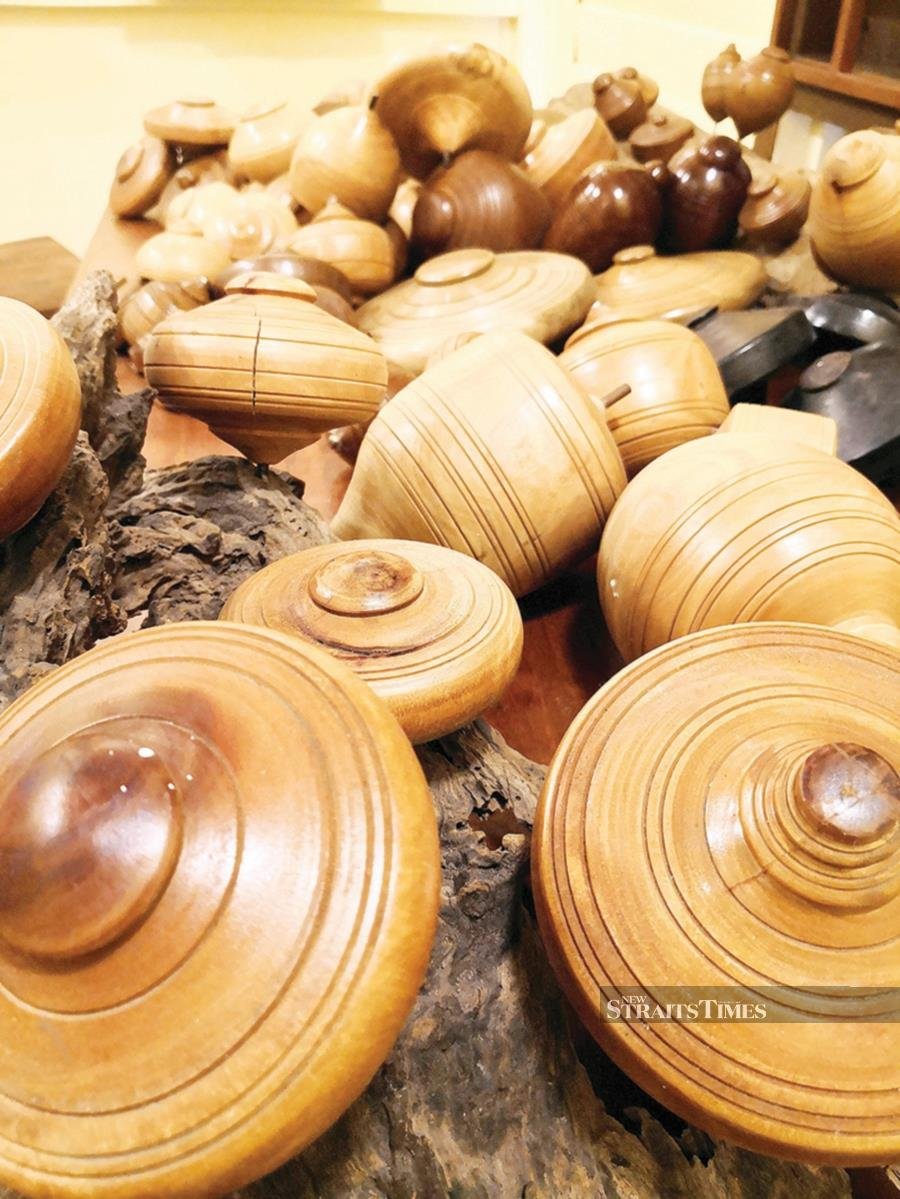
THE TERRAPIN TOWN
The two-hour long drive comes to an end when lunch arrives in the form of sumptuous packets of Nasi Engkong from Wak Sri, a popular local culinary institution with deep Javanese roots.
Once done, I quickly volunteer to tag along when Qian Wei announces her plan to head to Labis town for business.
During the 15-minute drive, she takes the opportunity to point out several interesting tourist landmarks and heritage sites before the Covid-19 pandemic struck.
While expressing hope for a quick return to some form of normalcy, she reveals that the town started off as a small settlement called Kampung Paya Merah, after a type of aquatic grass favoured by terrapins that are found in abundance in the river.
When British surveyors, tasked with identifying potential growth areas within Segamat district, arrived in the early 20th century, they were surprised to see so many of what appeared to them as tortoises.
When the amused villagers pointed out, in the Malay language, that the reptiles were actually labi-labi, the colonial officers were quick to correct themselves by referring to the terrapins as labis in the plural form.
When their development plans received the official nod of approval, the British formally renamed the place Labis.
Before heading to her client's office, Qian Wei drops me off at the Labis Craft Centre, which also serves as an incubator hub for nearby small-and medium-sized industries.
Located along the Labis-Muar trunk road, this single-storey colonial building is a treasure trove of truly astounding works by local artistic talent.
While many of the decorative items on display are wood-based, sustainability takes centre stage as the industrious artisans take the trouble to scour nearby forests for trees that were uprooted due to natural causes, like storms or termite attacks.
A group of intricately carved spinning tops on a nearby shelf immediately call to mind the craft centre's role in promoting various age-old pastimes, like top spinning, congkak and kite flying.
Interestingly, women are the main driving force behind the craft industry in Labis. Together with their male counterparts, they play active roles in helping to develop local cultural performances like zapin, kuda kepang, silat and ghazal.
At the same time, downstream ecotourism products that come in the form of organised visits to fruit and vegetable farms, floral gardens, traditional cake and snack producers, hot springs and forest reserves are prominently highlighted here.
After utilising the remaining time to explore the older part of town, I rejoin Qian Wei and head back to the farm for tea. The rest of the afternoon is spent exploring the many facilities catering to overnight visitors.
The day comes to a fitting end with a delectable dinner spread at the Look-Out Point while savouring a stunning sunset over the hills of Segamat.
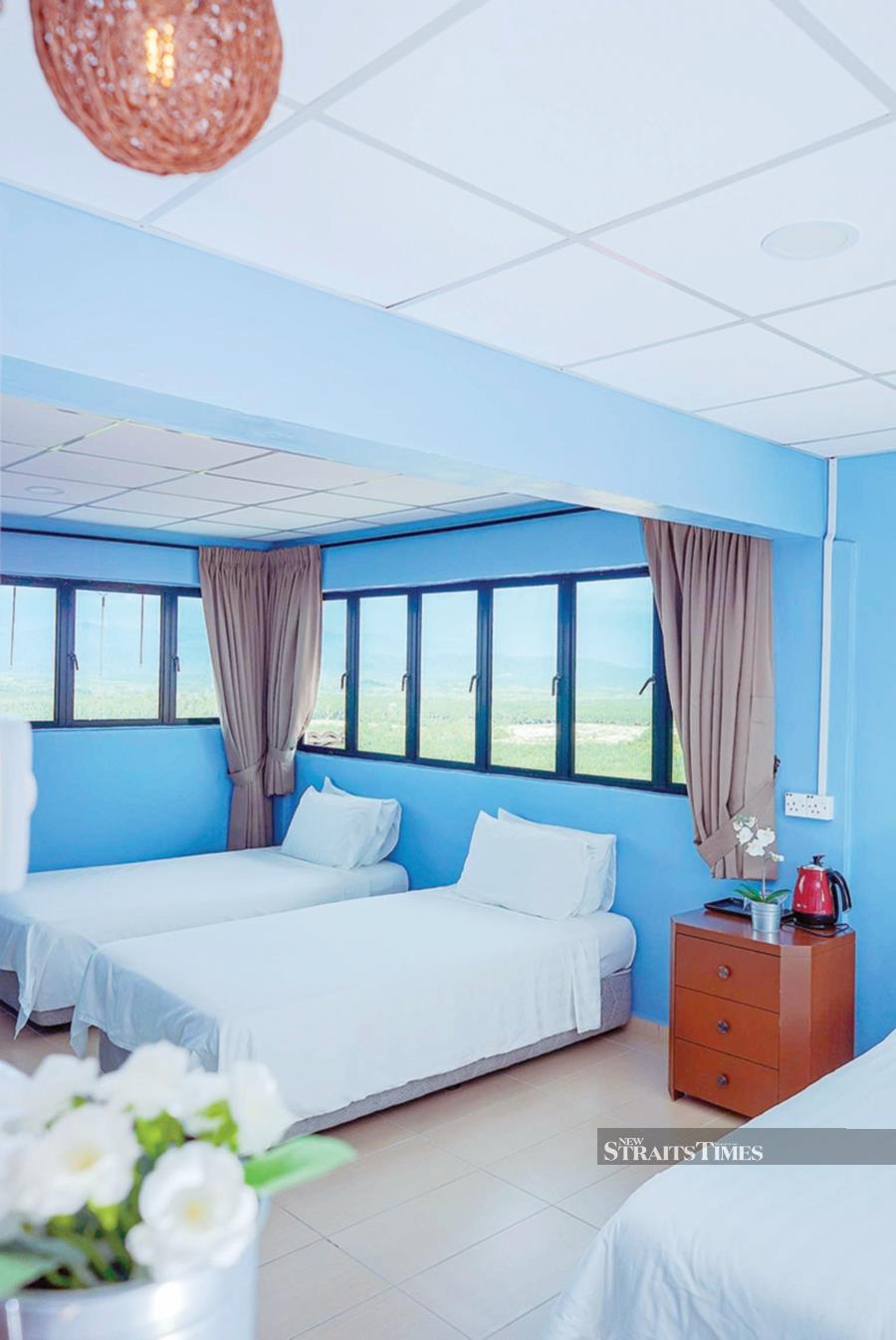
FAST FACTS
Labis Sunrise Farm
Lot 3091, Jalan Segamat, Mukim Labis, 85300 Segamat, Johor Darul Takzim.
TEL 017-516 6868
EMAIL [email protected]
WEBSITE www.labissunrisefarm.com
STAY There are 15 different rooms that suit the needs of individual travellers, as well as those in groups and families. Guest rooms are tastefully furnished with basic amenities and decorated with murals depicting farm life, with local attractions that will surely complement a truly memorable stay.
EAT Although there are no specially designated in-house restaurants, the Labis Sunrise Farm provides meals that suit all individual needs.
DO Labis Sunrise Farm offers a variety of travel packages. The farm tour includes visits to the herb and vegetable plot, fruit orchard, freshwater fish pond and the popular petting farm, where guests get to be up close and personal with cute furry rabbits, spring chickens and adorable goats. Recreational facilities include a karaoke room, pool table, mahjong, board games and bicycles. Those with more time to spare can opt for a 2D1N tour, which includes a visit to nearby Bekok and Labis towns.
GO Take time to visit the many attractions in Labis town, which is just a short drive away.
HIGHS Enjoy delicious fresh fruits away from the hustle and bustle of city life.
LOWS Mobile phone reception may be erratic at times, but the WiFi service proves reliable.
Seize luxury rooms at reasonable prices when planning a trip with Hotels Promo.


